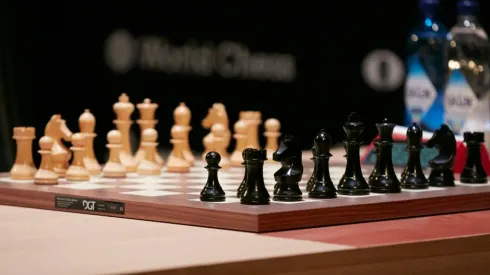A large range of sports have beenfeatured in the Summer Olympic Games all-around itshistory.Others, though, in spite of their popularity and great efforts, havenot managed to get included inthe Games.
One of them is Chess, whichis regarded as one of the most ancient games in mankind’s history. Whilst ideas about where and how Chess came from are certainly diverse, it can never be denied that it is one of the most intellectual games.
A single game of chess may deplete a person fully from a complicated calculation to identifying patterns. Chess has failed to secure a spot in the Olympics despite being one of the most played games in the world. The chess’ leading governing body, International Chess Federation (FIDE) hasattemptedto include itseveral times already, but without any success.
Has chess ever been in the Olympics?

Magnus Carlsen of Norway competes at a chess tournament in 2021. (Getty)
Chess was recognized as a sport in the 1920s by theInternational Olympic Committee(IOC). However,Chess is not widely regarded as a sport, unfortunately, because it doesn’t include actual athleticism. By definition, a sport is an activity in which the body is subjected to some form of physical activity. Thus, many people believe that “physical fitness”is lacking in Chess.
Chess demands the player to be above their mental strength, yet playing a match, theydon’t engage in any intense physical exercise. In 1999 when it came closest to being included in the Olympics.The idea was for Chess to be included in the Paris 1924 Games but it was eventually excluded, it was difficult to distinguishamateur from professional players. It took 75 years for Chess to be relevant to the Olympic authorities,as, in 1999, it was closest tobeing included in the Olympics.
Furthermore, the IOC have also acknowledged the World Chess Federation (FIDE). The 2014 Chess Olympiad, held in Norway, included players from around 170 nations fighting for top honors. In order to guarantee that they comply with the requirements of the IOC, FIDEregularly does doping tests on its players.





